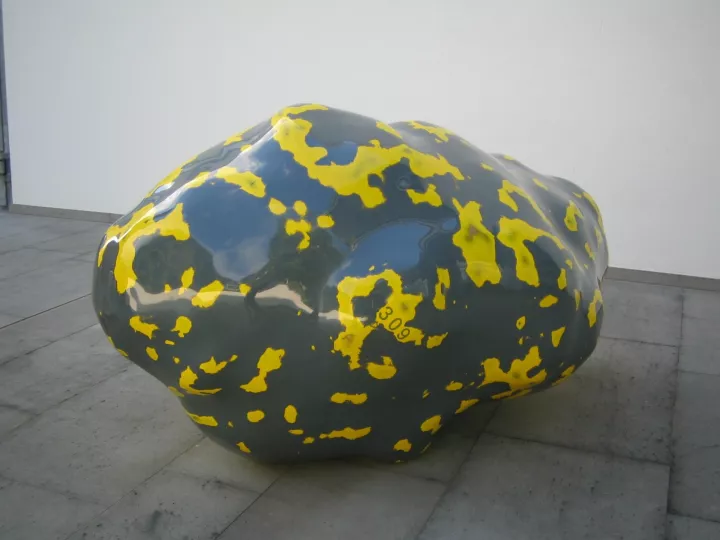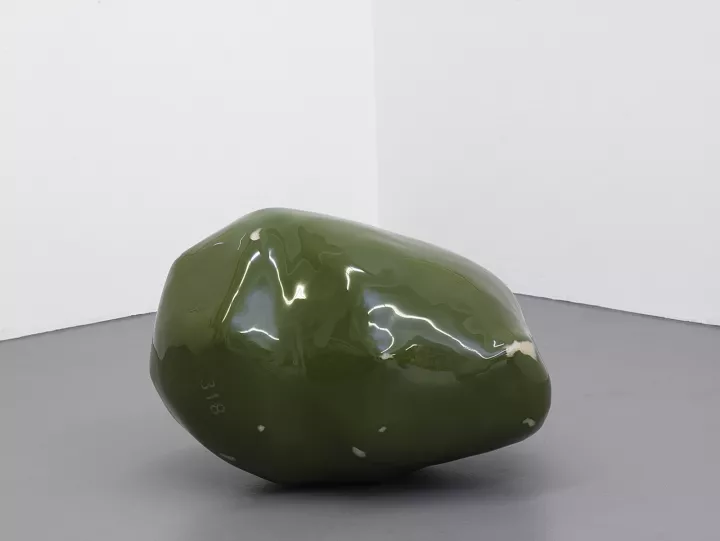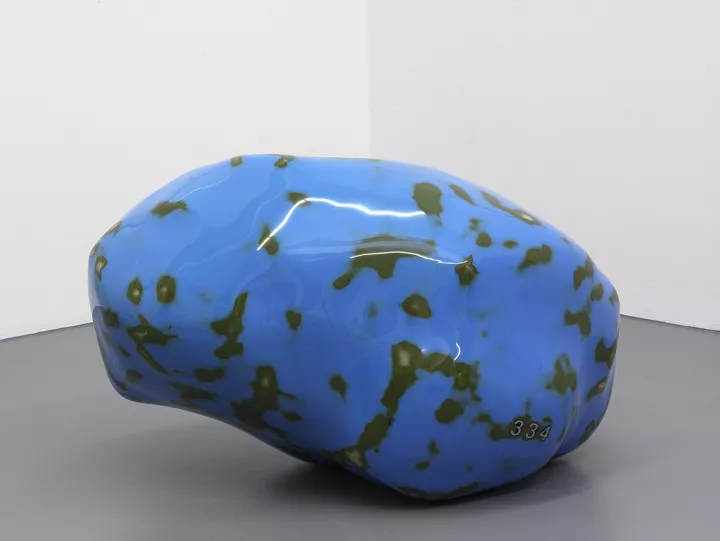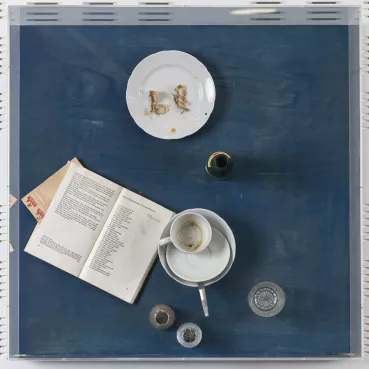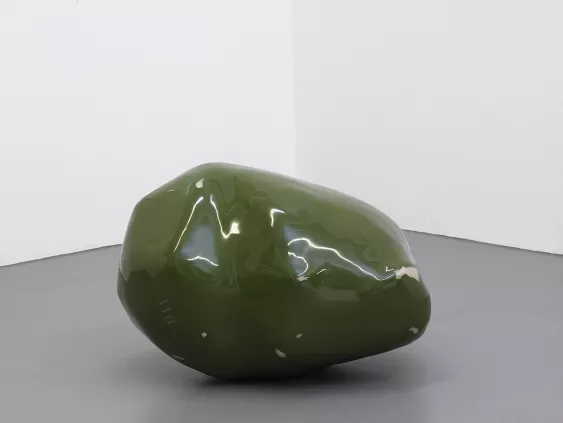
Zoom
Trashstone N°318
2006
Wilhelm Mundt
Sculpture
47 x 70 x 50 cm
Produktionsrückstände in GFK.
© ADAGP.
Produktionsrückstände in GFK
Wilhelm Mundt's work escapes from the traditional principles of seeking shape in sculptural creation and the aesthetics of ready-made although the starting point of his work is found in the residues of his studio. The core of his sculpture is made of this studio waste, which is then covered with layers of polyester and fibre glass. Pieces of aluminium are welded onto these elements. This process is handled by a foundry, which can be said to optimise the artist's work process.
© ADAGP.
Produktionsrückstände in GFK
Wilhelm Mundt's work escapes from the traditional principles of seeking shape in sculptural creation and the aesthetics of ready-made although the starting point of his work is found in the residues of his studio. The core of his sculpture is made of this studio waste, which is then covered with layers of polyester and fibre glass. Pieces of aluminium are welded onto these elements. This process is handled by a foundry, which can be said to optimise the artist's work process.
Wilhelm Mundt
Germany
Born in 1959
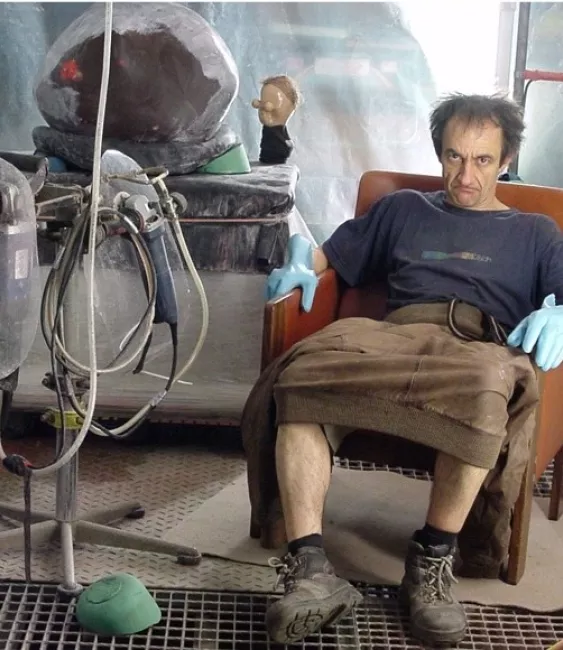
Born in Grevenbroich, Germany.
Wilhem Mundt was just over 30 when he made his first “stone” entitled Stein 001. Whether interpreted as meteorite, giant jellybeans or unidentified, post-historic objects, this modern-day scheme for recycling 20th-century ready-mades was launched by the Trashstones series in 1991. For the past two decades the artist has added new boulder-like episodes to the series each season. Mundt’s Trashstones owe their name to the way in which they were orginally made from the debris left lying around his studio. The artist still collects these various scraps of wood, packaging material, etc. and then shrouds them in layers of polyester and fibreglass. Could this be a metaphor for the end of (art) history?
Wilhem Mundt was just over 30 when he made his first “stone” entitled Stein 001. Whether interpreted as meteorite, giant jellybeans or unidentified, post-historic objects, this modern-day scheme for recycling 20th-century ready-mades was launched by the Trashstones series in 1991. For the past two decades the artist has added new boulder-like episodes to the series each season. Mundt’s Trashstones owe their name to the way in which they were orginally made from the debris left lying around his studio. The artist still collects these various scraps of wood, packaging material, etc. and then shrouds them in layers of polyester and fibreglass. Could this be a metaphor for the end of (art) history?
Artworks of
Wilhelm Mundt

Visit the Collection
Book a visitThe visit of the Collection is open to you! Come alone, in a group or on a school outing !
Reservation is mandatory in order to offer you a guided tour, at La Défense or by videoconference.
